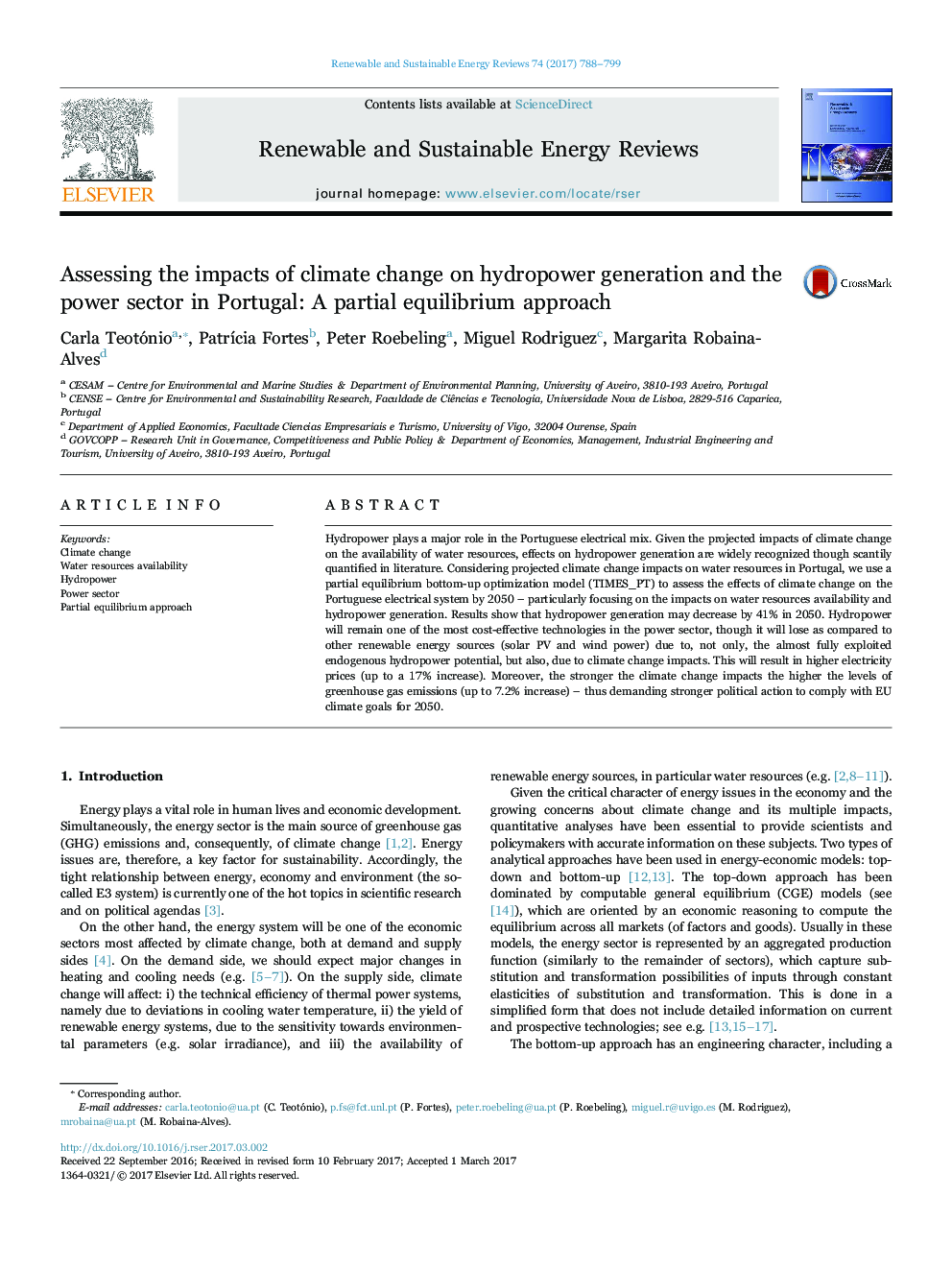| Article ID | Journal | Published Year | Pages | File Type |
|---|---|---|---|---|
| 5483157 | Renewable and Sustainable Energy Reviews | 2017 | 12 Pages |
Abstract
Hydropower plays a major role in the Portuguese electrical mix. Given the projected impacts of climate change on the availability of water resources, effects on hydropower generation are widely recognized though scantily quantified in literature. Considering projected climate change impacts on water resources in Portugal, we use a partial equilibrium bottom-up optimization model (TIMES_PT) to assess the effects of climate change on the Portuguese electrical system by 2050 - particularly focusing on the impacts on water resources availability and hydropower generation. Results show that hydropower generation may decrease by 41% in 2050. Hydropower will remain one of the most cost-effective technologies in the power sector, though it will lose as compared to other renewable energy sources (solar PV and wind power) due to, not only, the almost fully exploited endogenous hydropower potential, but also, due to climate change impacts. This will result in higher electricity prices (up to a 17% increase). Moreover, the stronger the climate change impacts the higher the levels of greenhouse gas emissions (up to 7.2% increase) - thus demanding stronger political action to comply with EU climate goals for 2050.
Related Topics
Physical Sciences and Engineering
Energy
Renewable Energy, Sustainability and the Environment
Authors
Carla Teotónio, PatrÃcia Fortes, Peter Roebeling, Miguel Rodriguez, Margarita Robaina-Alves,
